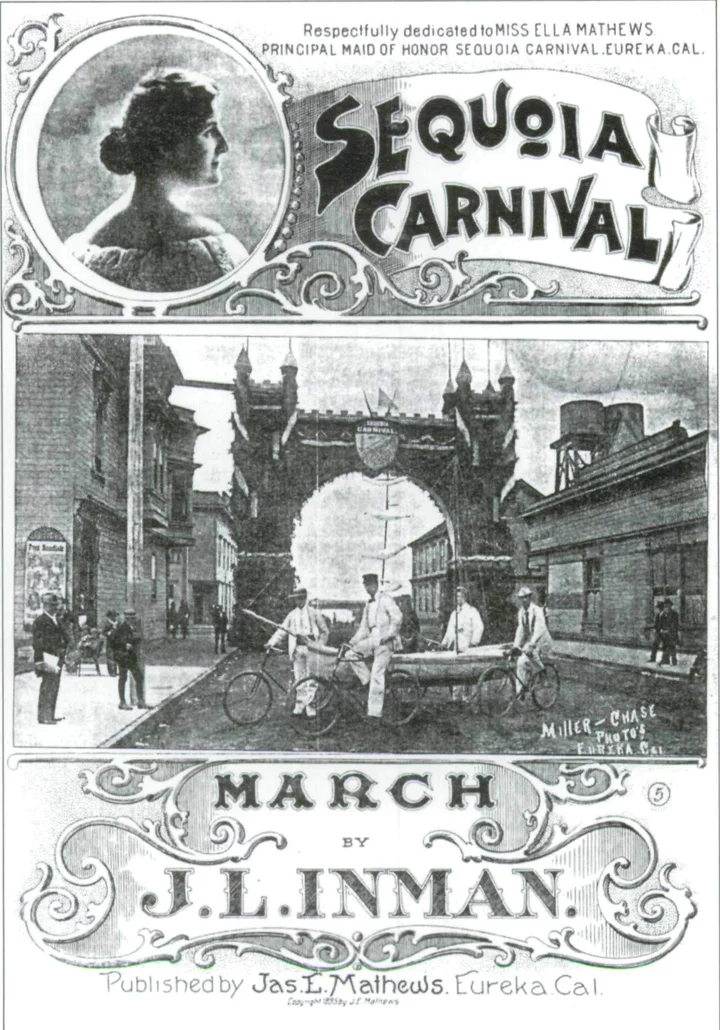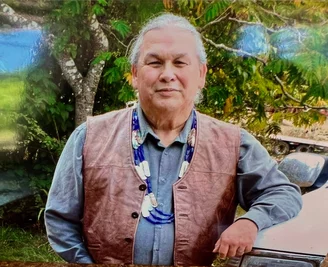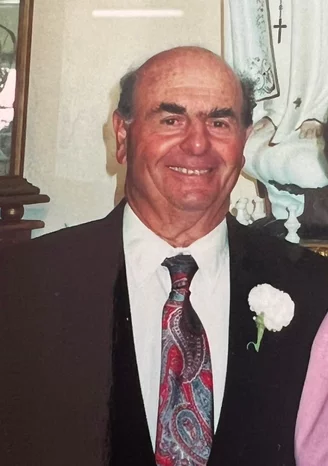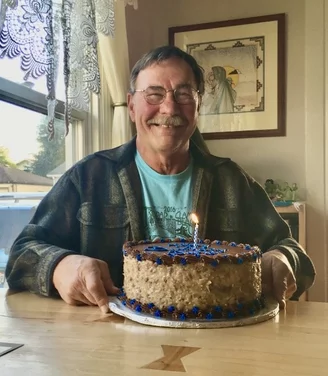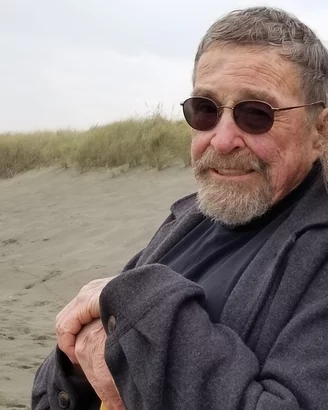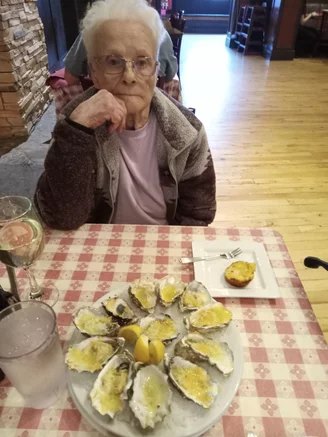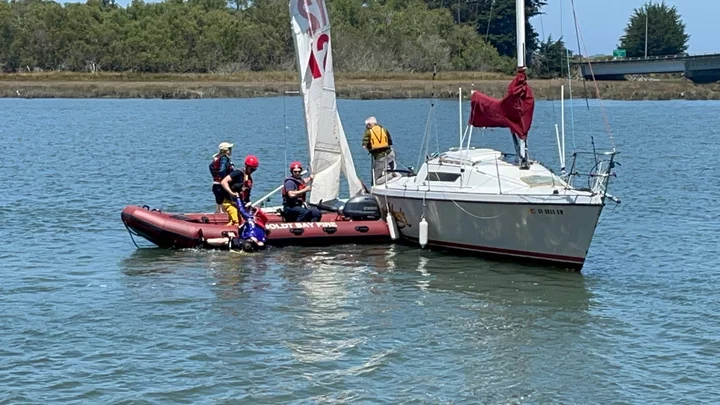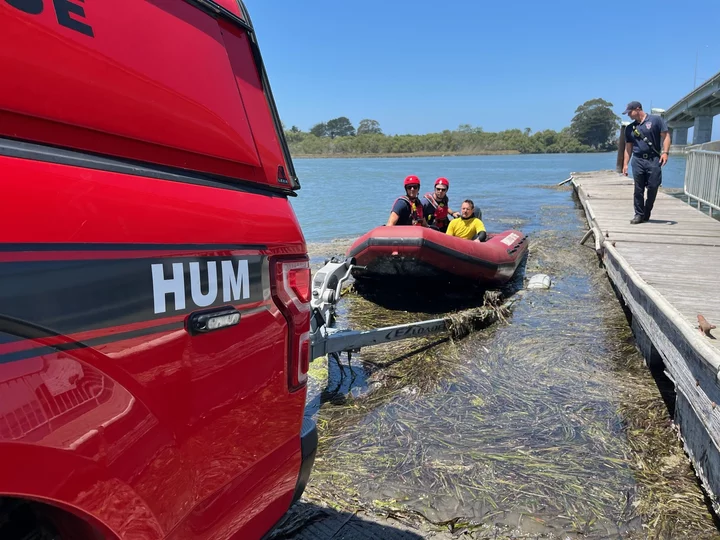HUMBOLDT HISTORY: Queen Sequoia Ruled the Three-Day Bacchanalia That Eureka Threw in 1895 For Basically No Reason at All
Robert Giroux / Saturday, July 6, 2024 @ 7:30 a.m. / History
The spring of 1895 brought a trio of festivals to Northern California. These celebrations were dubbed “Floral Fiestas” in newspaper accounts of the day.
Santa Rosa played host to the first Floral Fiesta, followed by Healdsburg in mid-May 1895. Apparently Eurekans were also caught up in the spirit of the festivities and organized their own “Sequoia Carnival” for July 18, 19 and 20. This festival ultimately outshone its counterparts to the south.
In mid-June, the town started gearing up for the festival with the announcement of the contest for Queen Sequoia. Ballots appeared daily in the Humboldt Times, eight per issue, and everyone was urged to write in a candidate for Queen as many times as they pleased. The final tally of votes confirms that the citizenry did indeed have their favorites and exercised their right to vote often and aggressively, many with gold coin and check book.
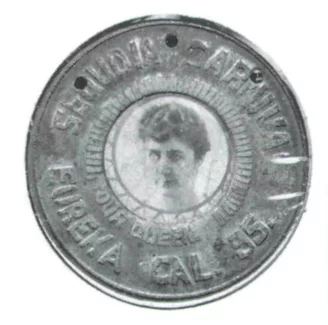
This small metal badge, approximately 1.5 inches in diameter, featured a photo of Queen Sequoia. Photos via the Humboldt Historian.
Saturday, July 14, at 8 p.m. saw the closing time for voting. The astounding number of 146,210 votes had been cast for the top three contenders for Queen Sequoia. It took some time to count the votes and when the results were exhibited to the crowd of over 2,000 assembled, the prolonged cheering could be heard for blocks. The final tally: Elma Haight 68,655; Ella Mathews 67,860; Annie Evans 9,695.
Elma Haight of Rohnerville was crowned Queen Sequoia and reigned over the festivities; and what festivities they were: parades, bicycle races, a firemen’s tournament, visiting dignitaries and more. Contestants for the various games arrived all week long. Bicycle racers came from San Francisco, San Jose, and the interior. The Humboldt Times reported this: “the grandest aggregation of crack wheelmen ever gathered in Northern California.” Fire apparatus was arriving on steamers, including the famous Pilot Hose Cart No. 3 from Santa Cruz, for the Hose Cart Races. Merchants were decking out their buildings and streets with redwood boughs, and taxidermist Charles Fiebig arranged his display of over 200 native Humboldt birds at Second and E Streets. This collection was reputed to be the finest in the state.
The booming of a cannon ushered in the first day of the Sequoia Carnival. Trainloads of people traveled in from the north, south, and inland towns. At noon the coronation of Queen Sequoia commenced at the plaza comer of Sixth & F Streets, then on to the parade under military escort. Participants included the militia and the city’s entire fire department of six companies, with flower- covered steamers, trucks and carts. Nearly all fraternal and social organizations from Eureka and surrounding towns participated, and 61 floats representing all the leading businesses and industries of the city were on hand. The parade was the largest ever witnessed in Northern California and took three hours to wind its way through the business district. The evening of the first day of the Sequoia Carnival featured a “grand water fete” on the bay, with the water covered with steamers, barges, launches, and row and sail boats illuminated with lanterns, exploding rockets and Roman candles.
This was the cover page to the Sequoia Carnival March, a piece of music written in honor of Ella Mathews. The sheet music was published by James E. Mathews, Ella’s father, who owned a music store.
The second day of the festivities again began with trainloads of visitors arriving and by 10 a.m. the streets were thickly crowded. The highlight of the morning was the firemen’s tournament. Besides the Santa Cruz racing cart entry, Eureka Engine Companies No. 1, 2, and 3 and Hook and Ladder Co. No. 1 participated. The course was F Street between Second and Fourth. The teams started at Fourth Street, taking the hydrant at Third and breaking and putting on pipe at Second Street, equivalent to running 600 feet and laying 300 feet of hose. Engine Co. No. 3 made the first run and had a stream in the air in 40.5 seconds. Hook and father, who owned a music store. Ladder Co. No. 1 had trouble connecting the pipe and took 71 seconds to complete the task. Engine Co. No. 1 took the cart and made the run and had water in 40 seconds. Last came Engine Co. No.2, holders of the Eureka Fire Department’s gold medal. Their appearance brought a burst of cheers from the large crowd, and they didn’t disappoint their admirers. They streaked down the course in 36.5 seconds, breaking all records.
The afternoon of day two included an open air concert, excursions to points of interest around the city and on the bay, and an exhibition by the U.S. Lifesaving Crew. The evening brought attention to Armory Hall, where Queen Sequoia and her attendants greeted a capacity crowd of over one thousand. First, the prize awards were given to the top parade entrants. The top prize of $15 was won by Arcata Sanitarium; other float winners included H.H. Buhne & Co., Z. Russ & Sons Meat Market, A. Rosaia, American Fish Market, Eureka Hardware Co., and The White House. After the prizes were distributed, the grand march commenced, accompanied by music from the 18-piece carnival orchestra. By 11 p.m. the grand ball was underway and lasted well into the morning hours.
The third and final day of the reign of Queen Sequoia was devoted to field sports and the cyclers. By previous arrangement all business houses closed at 1 p.m. and South Park race track became the center of attraction. The Humboldt Times reported that “people came on foot, on bicycles, on horse cars and in carriages, and it seemed as if every private and livery rig in the city was present. The three grandstands were filled to overflowing with ladies, while the men were packed in the enclosure below like sardines in a box.” Over four thousand spectators were estimated on the scene.
The cyclers were world class competitors and inspired spirited wagering among the crowd. Foot races were interspersed with the cycling events and purses for all races were generous, including fine silver watches, unset diamonds, bicycle suits, a diamond locket, a fine fishing rod and reel, a Marlin rifle, a pearl handled razor and suits of clothes. No records were set but there were some hot finishes. The evening brought a return of the crowd to Second and F Streets, where people gathered for the Illuminated Bicycle Parade, the closing feature of the carnival. Every bicycle was trimmed with ribbon and bunting, with some adding Japanese lanterns, red lights, and Roman candles. Of the 125 Bicycle Parade entrants, thirty were women who “were mostly dressed in white, and bloomers were the exception, the greater number of ladies wearing conventional short skirts.” Prizes were awarded to the best illuminated and best decorated bicycles.
When the wheelmen’s parade had passed, the immense crowd retreated once again to Armory Hall for the farewell reception. Surrounded by her faithful subjects. Queen Sequoia laid aside her crown and became once again Miss Elma Haight. With the abdication of Queen Sequoia, the Sequoia Carnival of 1895 came to a close. The city had never seen an event of such magnitude, and it is doubtful Eureka will ever again experience the all-out revelry of those three summer days 100 years ago.
###
The story above was originally printed in the Spring 1997 issue of the Humboldt Historian, a journal of the Humboldt County Historical Society. It is reprinted here with permission. The Humboldt County Historical Society is a nonprofit organization devoted to archiving, preserving and sharing Humboldt County’s rich history. You can become a member and receive a year’s worth of new issues of The Humboldt Historian at this link.
BOOKED
Today: 7 felonies, 7 misdemeanors, 0 infractions
JUDGED
Humboldt County Superior Court Calendar: Today
CHP REPORTS
No current incidents
ELSEWHERE
County of Humboldt Meetings: Audit Committee Agenda - Regular Meeting
The Atlantic: How America Got So Sick
The Atlantic: America Isn’t Ready for What AI Will Do to Jobs
NY Times : Can Mountain Lions Survive as Humans Close In? California Is Trying to Find a Way.
OBITUARY: Gary Lee Markussen Sr, 1951-2024
LoCO Staff / Saturday, July 6, 2024 @ 6:56 a.m. / Obits
Gary Lee Markussen Sr. was born March 15, 1951, in Hoopa and passed
on June 29, 2024, in Klamath.
Gary grew up in Arcata and spent his youth with friends and family throughout Humboldt and Del Norte Counties. In his younger years Gary was a self-taught musician, which was a lifelong love of his and was something that he shared by teaching the guitar and performing in the Paul Moon Band. After High School, Gary attended Humboldt State University as an ITEPP student and met many lifelong friends while also teaching at College of the Redwoods as a student professor.
After college, Gary began his career focused primarily on Indian Law and ICWA advocacy for Native American children and families throughout Northern California. His work as an ICWA expert for various tribes, community organizations, and families defined Gary’s career. He testified in countless child and family court cases and provided immeasurable assistance to native families and communities for over 40 years. Continuing his work towards assisting his community, Gary served on numerous executive boards and committees, empowering and uplifting those around him.
In continued service to his people, Gary worked with the Interim Council to help found the Yurok Tribal Government and later sat on Tribal Council as the South District Representative and later as Vice-Chair for the Yurok Tribe.
As a young man Gary was taught the traditional values, prayers and laws by his elders. In line with those teachings, Gary felt a responsibility to share what he was taught and provide opportunities for others to participate in their culture and learn those teachings as well. As part of an obligation to his teachers, Gary put up Brush Dance demonstrations throughout the state, country, and even internationally. He was invited to travel to Italy by the American-Italian Consulate to put up a Brush Dance demonstration and tell traditional Yurok stories at the request of Kevin Costner’s Pathway Productions. Additionally, for over a decade, he would travel every summer to Jackson Hole Colter Bay Museum with his family to do dance demonstrations, storytelling, and sell his jewelry. Gary was also a feather holder and dance leader for the White Deerskin Dance in Weitchpec, working with community and elders to help revitalize a long dormant ceremony that is vital to the Yurok people and plays a significant role towards the healing of our world. Later, Gary provided his knowledge and assistance towards uplifting and assisting the Wiyot community with their culture and ceremonies.
Gary always had a warm smile and loving embrace for his family, friends, and anyone who was in need.
In addition to being a loving father, brother, uncle, cousin, grandfather, and great grandfather, he was also a jewelry maker, master abalone craftsman, coach, foster parent, and so much more.
Gary was preceded in death by:
Daisy French, Albert “Allie” Markussen, Lottie James Markussen, Ronald French, Albert “Nicky” Markussen, Albert “Bubba” Markussen, Damien French, JJ Price, Rebecca Markussen, Teddy James, Wallace Markussen, Llewelyn “Stoons” Markussen, Gertrude Markussen, Vernon Markussen, Leonard Markussen, Ricky Markussen, Gloria French, Gloria Brooks, Melissa Brookes, Debbie Markussen, Colleen Foster
He is survived by:
Linda Morse, Daniel French Sr, Marlene Markussen, Elizabeth Azzuz (Vini), George Markussen (Koni), Daniel French Jr, Shona French, Ronald French, Nathan French, Cherie French, Llewelyn French (Tracy), Frank Donahue; Children: Debra Law (Jeff), Julian Sr. (Christina), Delores (Troy), Genevieve (Gil), Gary Jr (Seafha), Scraigon, Jacquelene (Justin), Matea (Daniel), Michael, Chad, Charlie; Grandchildren: Julian Jr (Ashley), Colleen (Anthony), Ray, Willy (Kaleya), Walker (Presslyn), Austin (Arianna), Mason, Kobe, Uvaramii, Teynowonee, Kyahchenee, Amaris, Ponchess, Allie, Kaiden, Eli, Isaiah, Merk, Amaris, Daniel, Madison, Sophia, William; Great grandchildren: Kagah, River, Kiseqot, K’wo, Pergish, Leilanni, Ella
Pall bearers:
Julian Markussen Jr, Ray Markussen, Austin Mitchell, Kobe Mitchell, Mason Mitchell, Uvaramii Croy, Teynowonee Croy, Anthony Colegrove
Honorary pallbearers:
Daniel French, Daniel French Jr, Saif Azzuz, Nicholas Markussen, Franky Donahue, Ronald French, Nathan French, Dennis McKinnon, Chris Pardita, David Tripp, Willard Carlson, Bob McConnell, Beanie Vigil, Walt Lara Sr., Ted Hernandez, Sonny Frank, Mike Lincoln, Bruce Kaye, Harold Jones, Ernie Albers Sr., Ernie Albers Jr., Amos Albers, Dicky Myers, Brian Richards, Dan Ryles, Joe James, Jesse James, Victor Knight, Ryan Offins, Harold Myers, Joe Giovanetti
Services for Gary will be held on Saturday, July 6, 2024 in Arcata at Greenwood Cemetery.
Viewing from 12-1 p.m. Graveside Services at 1 p.m., with reception to follow at D St. Neighborhood Center, Arcata.
###
The obituary above was submitted on behalf of Gary Markussen Sr.’s loved ones. The Lost Coast Outpost runs obituaries of Humboldt County residents at no charge. See guidelines here.
OBITUARY: Domingo Drumond Santos, 1936-2024
LoCO Staff / Saturday, July 6, 2024 @ 6:56 a.m. / Obits
Domingo
Drumond Santos
October 3, 1936 – May 22, 2024.
Domingo Santos passed away peacefully in Eureka at the age of 87. Domingo was born in Arcata to Manuel and Maria Santos, who immigrated to America from Sao Sebastiao, Terceira, Azores, Portugal.
Born into a long legacy of dairy ranchers, Domingo began working with his father on the original family ranch on Jackson Road in Arcata at an early age and ultimately took over the Santos dairy operations in 1968. Under Domingo’s leadership, he established the Windy Acres brand, expanded the size of the family ranch, automated the milking processes, and grew the family dairy operation to peak levels that allowed the dairy to process 400 milk cows a day by the end of 2022. Domingo also owned and operated Ag Sales, the local Massey Ferguson franchise and agricultural equipment and supply store in Arcata. Domingo loved his cows and his work, and he could always be found at the ranch, near the milk barn, or on a tractor and out in the fields tending to his cows. Throughout his life, Domingo loved and supported his family and maintained deep friendships and business relationships within the Portuguese community and local ranching circles.
Domingo graduated from Arcata High School in 1954. He married JoAnne Roberts from Arcata in 1957 and they had two sons. In 1963 he married his lifelong partner, Mary Santos, who preceded him in death in 2015, and they had one son.
Domingo is survived by his sister, Irene Grossman, his three sons Rick Santos, Brett Santos, and Randy Santos, his four stepdaughters, Karen Mann, Sharon Martin, Lorelei Woods, and Kristina Plisik, and 16 grandchildren and 12 great-grandchildren.
All are invited to join a Mass at St. Mary’s Catholic Church in Arcata on Friday July 19 at 11 a.m., and to come together and share their memories with family and friends in a celebration of life luncheon at the Portuguese Hall in Arcata following the Mass.
In lieu of sending flowers, the family requests that charitable donations be made to St. Mary’s Catholic Church, the local Portuguese Hall, or a charitable organization of their choice in the name of Domingo Santos.
###
The obituary above was submitted on behalf of Domingo Santos’s loved ones. The Lost Coast Outpost runs obituaries of Humboldt County residents at no charge. See guidelines here.
OBITUARY: David Keith Boston, 1951-2024
LoCO Staff / Saturday, July 6, 2024 @ 6:56 a.m. / Obits
David Keith Boston passed away on Tuesday, June 25, 2024 following
complications of a stroke. David was a Taoist and it is believed that
you come from nature and then go back to nature. Death is a natural
process of life. During his passing, David was surrounded by close
family and friends.
David was born to David Ray Boston and Betty Jane Boston (Stallman) May 21, 1951 in Lusk, Wyoming. In his early years, David’s family moved to Hennessey, Oklahoma . David worked on hot rods, hauled hay worked in the oil fields, and did welding. He earned his LVN degree in 1974.
By fate, he met his daughter Angelique M. Boston in December 1971. He met the love of his life Deborah J. Bryan in 1975. They were married June 14, 1979. David and Debe had just celebrated their 45th wedding anniversary with close friends Robert and Dana Radtke,their children Arlo and Lance, and Jeff and Debbie McCallay.
In 1978, his family moved to Eureka, where he resided for the remainder of his life.
David earned his AA in Arts at College of the Redwoods.
David, a.k.a PaPa, was a jack of all trades. This is just a few of his plethora of skills and interests.
David will be remembered by many for his love of all things apple. David grafted, pruned, and juiced apples. His grandchildren declared that “PaPa Juice” was the best apple juice ever. David and his long-time friend, Garzob, built an apple juice press and made thousands of gallons of apple juice throughout the years.
In 1986, David and his family moved to “the property” in Freshwater. David was caretaker of the Carson Hunting Lodge estate for Dr. Peter Burgess for a total of 33 years, thus began his interest in horticulture. The acreage provided David with a playground of plants to experiment with.
While David earned his LVN in 1974 he did not start his nursing career until moving to Eureka. David was a Pediatric Home Care nurse as well as a valued substitute at Glenn Paul. He loved taking care of children and it was one of his many passions. He made an impact on many families lives while caring for their children.
Early on, David developed an interest in photography. He always had a camera available for the unexpected photographic opportunity and there were many. While his specialties were landscapes and portraits, nothing was out of the scope of his lens. His wife, Debe, can attest to the many stops along many roads to take a photograph. David’s photographs will be on display at the Redwood Art Association in gallery #4 from July 15 through August 12, as well as the North Coast Lens from July 17 to August 12. The family would like to give a special thank you and appreciation to one of David’s other longtime friends, Jeff McCallay, who is helping to organize the celebration of life and the honorary exhibition for David in gallery #4.
Speaking of galleries, David was very involved in the Humboldt County Art Scene. He was an early member of the Ink People and moved on to the Redwood Art Association. The RAA became near and dear to David even more so after retiring. He occupied many roles within the organization including president and vice president, and he was on the Board of Directors. There was not a job or task that was too small that David wouldn’t tackle. He was the go-to guy for the cleaning crew and maintenance.
David had a love of many hobbies in his life such as woodworking, kayaking and rafting with friends on the Trinity. He was an avid rock climber and he scaled Devil’s Tower in Wyoming, Lover’s Leap in Tahoe and Smith Rock in Oregon, to name a few. He was an enthusiastic backpacker and trailed the Continental Divide, the Trinity Alps, the Sierra Mountains and the Marble Mountains. He was also a girl scout leader for his daughter’s girl scout troop when she was younger. He enjoyed running and participating in the local half marathons such as The Avenue of the Giants, the Humboldt Redwoods Half Marathon, The Clam Beach Run, and the Turkey Trot. David was always willing to lend a helping hand to anyone who needed it. He will be greatly missed by his wife, daughter, and granddaughter.
He is preceded in death by his parents, David and Betty Boston, his sister Ramona Ann Boston (Rarick), his nephew Michael Edward Rarick and other family that has passed before him.
David leaves behind many people who loved, admired, and adored him. This includes his wife Deborah J Bryan, daughter Angelique M Boston, granddaughter Moriah E Maxwell, grandson Daniel J Maxwell Jr., nieces Jennifer Rarick (Means) and Megan Rarick (Brendle), and his wife’s brothers, sisters, and mother-in-law Marilyn Bryan. David did not know a stranger. If you were inclined to light one up David would not protest.
David requested that there be no funeral services. The Redwood Art Association is graciously hosting an informal Celebration of Life to honor this wonderful one-of-a-kind man and all the contributions he has given to the art community on Sunday August 25th 2024 from 2-4 at the RAA at 603 F Street Eureka, CA 95501.
In Lieu of flowers or expense for travel the family asks that you donate to the Redwood Art Association Gallery Accessibility Fund. This is a project for a chair lift dedicated to ensuring all areas of the gallery are accessible to all the individuals of all physical capabilities. It is a project that David was very passionate about. Go to this link to donate to “RAA Gallery Accessibility Fund,” or visit the GoFundMe page at this link. The family would like to send their appreciation to the Redwood Art Association members for graciously giving the space to hold the celebration of life for and the honorary exhibition for David.
The Family would like to thank the Emergency Room and ICU Caregivers of Providence St Joseph Hospital, Eureka as well as Ayres Family Cremation for taking amazing care of David during his last days on this Earth.
David’s ashes will be spread under an apple tree in a place that was special to him.
In the end, the treasure of life is missed by those who hold on and gained by those who let go.
~ Lao-tzu
###
The obituary above was submitted on behalf of David Boston’s loved ones. The Lost Coast Outpost runs obituaries of Humboldt County residents at no charge. See guidelines here.
OBITUARY: Michael Gene Mullen, 1937-2024
LoCO Staff / Saturday, July 6, 2024 @ 6:56 a.m. / Obits
Mullen, Michael Gene, age 87, died June 23, 2024; Kenzie Mullen, his wife of over 40 years, was with him when he passed peacefully at St. Joseph Hospital in Eureka.
The son of Virginia and Robert Mullen, Mike Mullen was a committed and lauded artist his whole life, and a longshoreman for 35 years: a union advocate, he was president of his local as well as president of the pensioner’s club, and held other important offices. The owner of a Victorian he lovingly restored, Mike was a tremendous gardener, a world traveler, and a collector of art as well as a great supporter of local artists. Sober for 40 years, he was an effective and beloved AA sponsor, as well as a frequent and generous entertainer, well-known for his sense of humor and his talent as a storyteller.
Mike is sorely missed by his wife Kenzie Mullen, his brother Don Mullen of Oakland, his half-sister Kerry McGinn of Spokane, as well as his children, Laura Mullen, Ben Mullen, and Lynn Collins, and grandchildren, Sean Mullen, Kevin Mullen, and Monique Ridgeway, as well as his great-granddaughter Evelyn Ridgeway, and the wide circle of dear friends he and his wife collected.
Donations in Mike’s memory might be sent to the Humboldt Arts Council, Miranda’s Rescue or the American Friends Service Committee.
###
The obituary above was submitted on behalf of Michael Mullen’s loved ones. The Lost Coast Outpost runs obituaries of Humboldt County residents at no charge. See guidelines here.
OBITUARY: Donna Jean Alcorn Goddard, 1934-2024
LoCO Staff / Friday, July 5, 2024 @ 6:56 a.m. / Obits
Donna Goddard
November 5,
1934 – June 30, 2024.
Donna
Goddard passed away Sunday June 30, 2024 at the age of 89. She
was born November 5,
1934, in Sanger to Granville and Alice Alcorn.
In
1952 the family moved to Westhaven, where Donna graduated from Arcata
High School. Donna met and married her lifelong love, Don and
together they had four children. Donna loved her family and was a
good mom, auntie, grandmother and great-grandmother.
Donna
was never afraid of a hard day’s work and had some very interesting
jobs; she worked as a switchboard operator at the local phone
company, tallied lumber for Arcata Redwood, ran North Bay Firewood
with her son, Gary, and even operated the chop saw at Simpson Timber
Company. In her time off she enjoyed spending time with family and
friends at their place in Redwood Creek, fishing on the Klamath, and
bowling; in fact, she was an expert (competitive) bowler, with many
trophies to prove it.
Donna
is survived by her children, Renee, David, Gary, and Susan;
grandchildren, Jennifer, Bobbi, Josh, Cody, and Tucker; and
great-grandchildren, Layla, Cameron, Kaileigh, Camerin, Tyler, Invy
and Abby. Donna was preceded in death by her husband, Don; her twin
sister, Norma; her parents Granville and Alice Alcorn; brothers,
Clyde, Virgil, and “Kenny” Ken Alcorn.
A graveside service will be held at Greenwood Cemetery, 1757 J St., Arcata on Wednesday July 10 at 1 p.m. Services are under the direction of Paul’s Chapel, 1070 H St. Arcata. In lieu of flowers please send donations in Donna’s name to the Senior Resource Center in Eureka.
###
The obituary above was submitted on behalf of Donna Goddard’s loved ones. The Lost Coast Outpost runs obituaries of Humboldt County residents at no charge. See guidelines here.
Busy Fourth of July for Humboldt Bay Fire: Vegetation Fire Extinguished, Passengers in Overturned Sailboat Rescued
LoCO Staff / Thursday, July 4, 2024 @ 5:33 p.m. / Fire
Press release from Humboldt Bay Fire:
On 7/04/2024 from the hours of approximately 10:00 a.m. to 2:00 p.m. Humboldt Bay Fire has responded to multiple incidents, including a vegetation fire fire that spread from a transient encampment, and a water rescue near the Samoa bridge.
At just after 12:00 pm an engine, ladder truck, and Battalion Chief from HBF responded to a vegetation fire in the marsh area near 6th and V St. Multiple callers reported hearing explosions with flames seen in the greenbelt marsh areas. Units arrived to find an unoccupied transient encampment on fire that had spread into surrounding vegetation amounting to approximately a quarter acre. Humboldt Bay Fire spent approximately an hour extinguishing the fire. No civilians nor any firefighters were injured.
As the vegetation fire incident was wrapping up at 12:55 pm Humboldt Bay Fire was called to a water rescue for a sailboat overturned and in distress with multiple people in the water under the Samoa Bridge.
Several units with specialized water rescue personnel along with our water rescue boat responded to the scene. A Humboldt Bay Fire rescue swimmer entered the water to assist the two distressed boaters, and then assisted them into our rescue boat. Humboldt Bay Fire personnel then assisted their distressed vessel back to the Woodley Island Marina. Thankfully no one was injured during the incident.
Humboldt Bay Fire continues to provide a diversified skill set to mitigate various types of emergencies of our community. As we assist our citizens we thank you for your continued support of the fire department.Humboldt Bay Fire would like to remind everyone that only safe and sane fireworks with a seal from the State Fire Marshal’s office are legal and safe to enjoy. No aerial fire works are permitted. Each year hundreds of people are injured from illegal fireworks.
We also remind you that as the weather heats up, even in the greater Eureka area, to exercise safety in and around bodies of water. Whether it is the bay, pools, or rivers be mindful of your personal safety and those around you!

